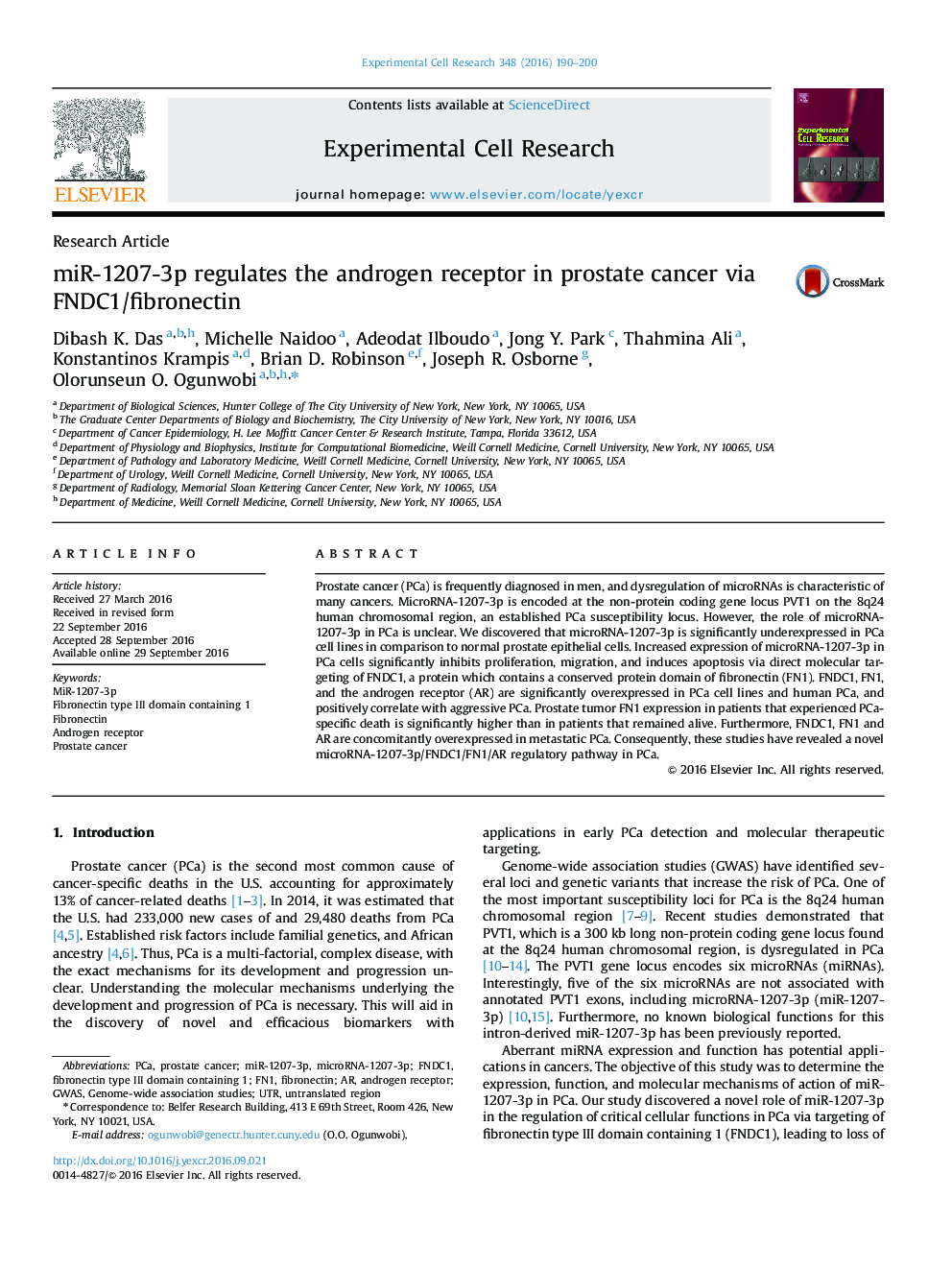| Article ID | Journal | Published Year | Pages | File Type |
|---|---|---|---|---|
| 5527343 | Experimental Cell Research | 2016 | 11 Pages |
•Expression of microRNA-1207-3p is significantly lost in prostate cancer (PCa) cells.•MicroRNA-1207-3p regulates proliferation, apoptosis, and migration via direct molecular targeting of the 3′UTR of FNDC1.•MicroRNA-1207-3p regulates proliferation, apoptosis, and migration via direct molecular targeting of the 3′UTR of FNDC1.•FNDC1, FN1, and AR are concurrently overexpressed in metastatic PCa.
Prostate cancer (PCa) is frequently diagnosed in men, and dysregulation of microRNAs is characteristic of many cancers. MicroRNA-1207-3p is encoded at the non-protein coding gene locus PVT1 on the 8q24 human chromosomal region, an established PCa susceptibility locus. However, the role of microRNA-1207-3p in PCa is unclear. We discovered that microRNA-1207-3p is significantly underexpressed in PCa cell lines in comparison to normal prostate epithelial cells. Increased expression of microRNA-1207-3p in PCa cells significantly inhibits proliferation, migration, and induces apoptosis via direct molecular targeting of FNDC1, a protein which contains a conserved protein domain of fibronectin (FN1). FNDC1, FN1, and the androgen receptor (AR) are significantly overexpressed in PCa cell lines and human PCa, and positively correlate with aggressive PCa. Prostate tumor FN1 expression in patients that experienced PCa-specific death is significantly higher than in patients that remained alive. Furthermore, FNDC1, FN1 and AR are concomitantly overexpressed in metastatic PCa. Consequently, these studies have revealed a novel microRNA-1207-3p/FNDC1/FN1/AR regulatory pathway in PCa.
Graphical abstractmiR-1207-3p/FNDC1/FN1/AR is a novel regulatory pathway in prostate cancer.Figure optionsDownload full-size imageDownload high-quality image (142 K)Download as PowerPoint slide
